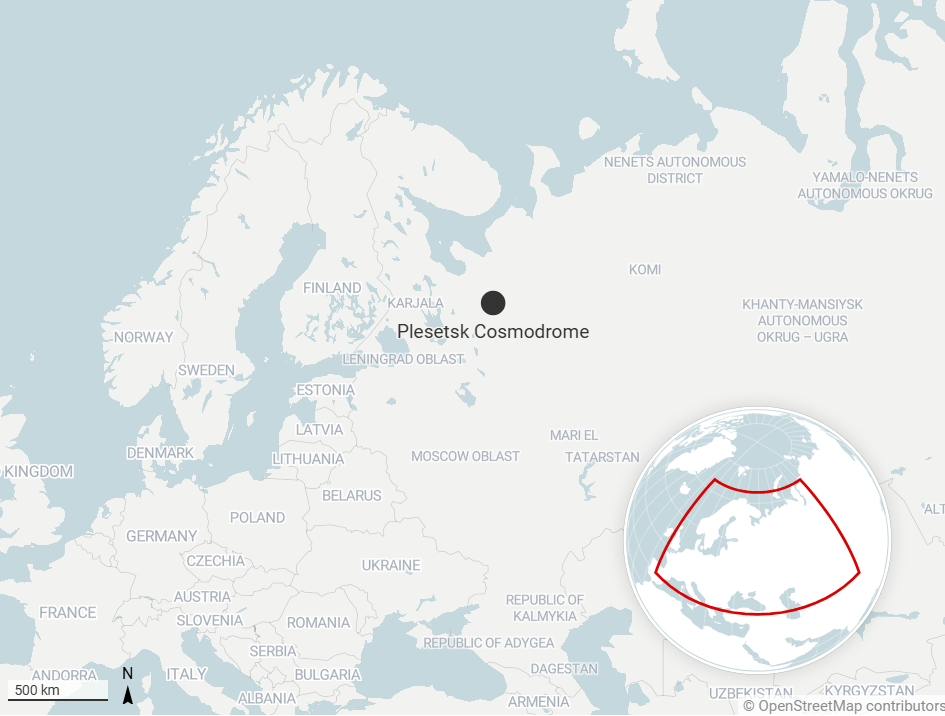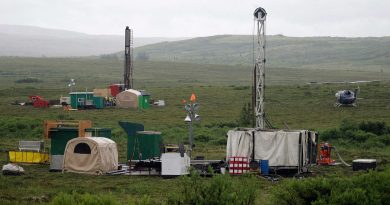Lift-off for new Russian military satellites

The Russian Aerospace Forces in Plesetsk have launched a Soyuz-2.1B rocket with military payload.
The launch took place in the morning of 5 February at the north Russian cosmodrome, the Russian Armed Forces inform.
Several satellites were sent into orbit. The exact number and their kind is not specified.
A video from the launch shows that the rocket was marked with a Z, the Russian Fascism-inspired symbol of the war of aggression against Ukraine. The rocket was also marked with the 80-year anniversary symbol of Russia’s victory in 2WW.
According to newspaper Kommersant, the Russian Aerospace Forces in 2024 launched a total of five Soyuz-2.1B rockets, the last of them in December. Then, the payload included only one satellite.
Plesetsk is the main Cosmodrome in Russia and is located some 200 kilometers south of Arkhangelsk. In addition to satellite launches, the cosmodrome is also key in testing Russia’s land-based ballistic nuclear missiles.
Related stories from around the North:
Canada: Survey shows Canadians fear losing Arctic territory without stronger action, CBC News
Denmark: ICC warns against sidelining Inuit as global powers eye Greenland, Eye on the Arctic
Finland: US in Greenland could improve Arctic security, Finnish defence minister suggests, Yle News
Greenland: Greenlanders overwhelmingly oppose becoming part of the United States, poll shows, Reuters
Norway: Norway’s Finnmark brigade to boost Arctic border defense, reevaluate training limits, The Independent Barents Observer
Russia: New radars sharpen Russian air defense over northern Finland, Norway, The Independent Barents Observer
Sweden: Swedish PM on Trump comments: Only Denmark and Greenland decide, Radio Sweden
United States: Trump again calls to buy Greenland after eyeing Canada and the Panama Canal, Eye on the Arctic



